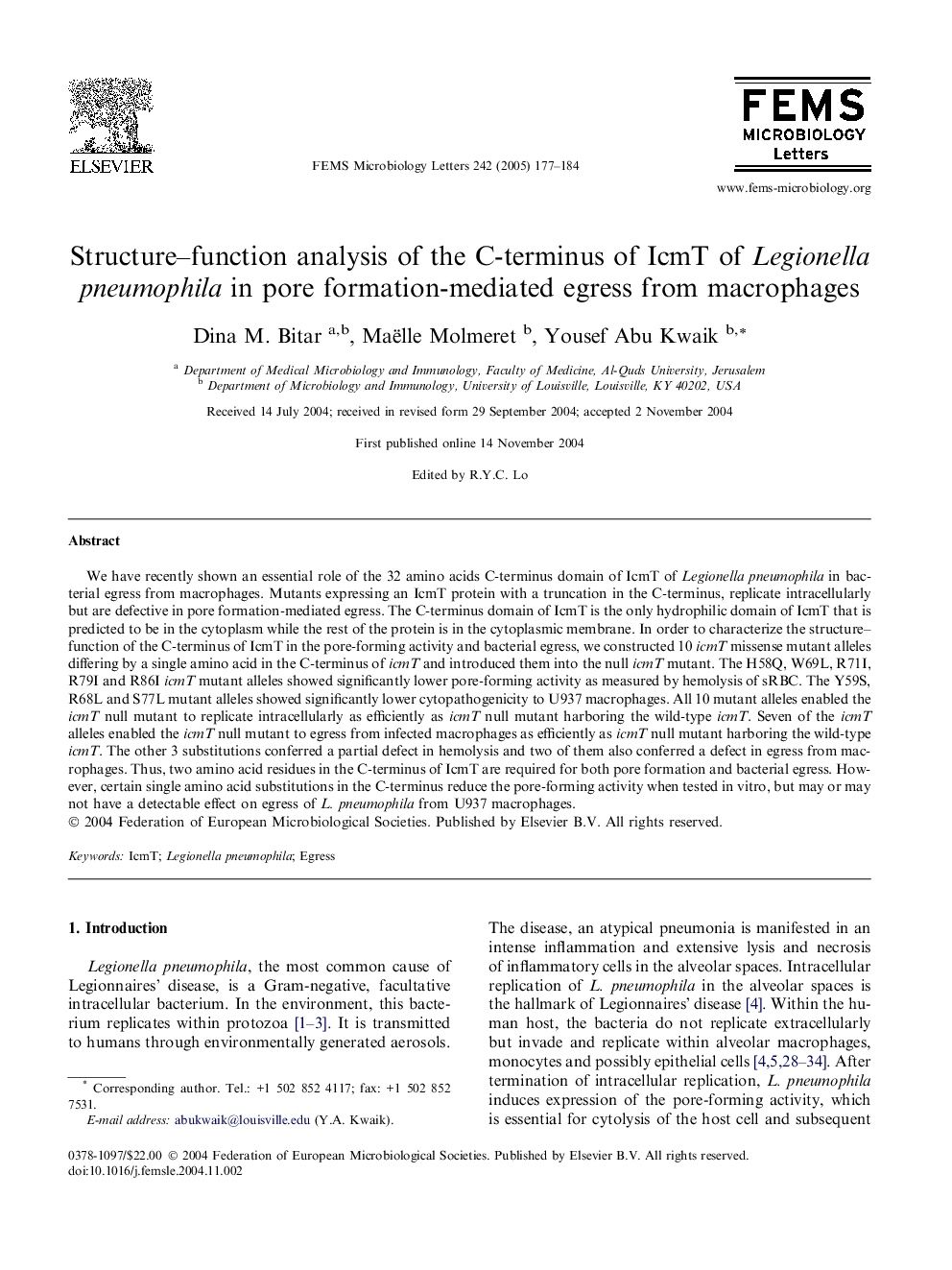| Article ID | Journal | Published Year | Pages | File Type |
|---|---|---|---|---|
| 9122215 | FEMS Microbiology Letters | 2005 | 8 Pages |
Abstract
We have recently shown an essential role of the 32 amino acids C-terminus domain of IcmT of Legionella pneumophila in bacterial egress from macrophages. Mutants expressing an IcmT protein with a truncation in the C-terminus, replicate intracellularly but are defective in pore formation-mediated egress. The C-terminus domain of IcmT is the only hydrophilic domain of IcmT that is predicted to be in the cytoplasm while the rest of the protein is in the cytoplasmic membrane. In order to characterize the structure-function of the C-terminus of IcmT in the pore-forming activity and bacterial egress, we constructed 10 icmT missense mutant alleles differing by a single amino acid in the C-terminus of icmT and introduced them into the null icmT mutant. The H58Q, W69L, R71I, R79I and R86I icmT mutant alleles showed significantly lower pore-forming activity as measured by hemolysis of sRBC. The Y59S, R68L and S77L mutant alleles showed significantly lower cytopathogenicity to U937 macrophages. All 10 mutant alleles enabled the icmT null mutant to replicate intracellularly as efficiently as icmT null mutant harboring the wild-type icmT. Seven of the icmT alleles enabled the icmT null mutant to egress from infected macrophages as efficiently as icmT null mutant harboring the wild-type icmT. The other 3 substitutions conferred a partial defect in hemolysis and two of them also conferred a defect in egress from macrophages. Thus, two amino acid residues in the C-terminus of IcmT are required for both pore formation and bacterial egress. However, certain single amino acid substitutions in the C-terminus reduce the pore-forming activity when tested in vitro, but may or may not have a detectable effect on egress of L. pneumophila from U937 macrophages.
Keywords
Related Topics
Life Sciences
Biochemistry, Genetics and Molecular Biology
Genetics
Authors
Dina M. Bitar, Maëlle Molmeret, Yousef Abu Kwaik,
